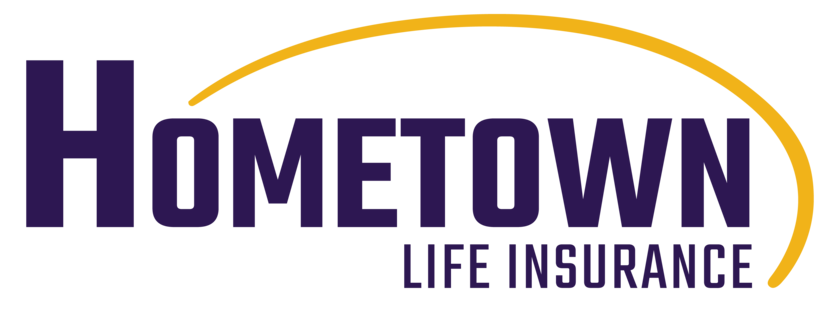Charitable giving can continue long after you pass away when you utilize your life insurance policy as a vehicle.
When taking out a life insurance policy, you will be asked to name one or more beneficiaries. Often, individuals choose a spouse, their children, or another family member or close friend, but not always.
Are you aware of your options for planned giving using life insurance? Leaving a large sum of money to a charity gives them a huge boost in doing the good work they do for their communities – work that will surely continue many years after you are gone. It is a beautiful way to leave a legacy of your life.
3 Ways to Leverage Your Life Insurance for Charitable Giving
It is a great day when a charity receives notice that they are the beneficiary of a life insurance policy of any amount. When the funds arrive in their bank account, they can begin the process of making decisions about how best to use the money to support their mission.
If donating your life insurance policy is something that sounds like it will work for you, there are three ways to go about it.
- Before exploring your options, it is important to learn more about who is involved in an insurance contract. The following four parties make up a life insurance contract:
- Insured – The life insurance policy protects this individual.
- Owner – This individual owns the insurance policy and can control it. They also have the authority to change beneficiaries.
- Payor – The payor can be an individual, company, or trust, and they are responsible for paying the premiums on a life insurance policy.
- Beneficiary – This can be an individual, group of individuals, or organization, and the recipient receives the death benefit when the insured dies.
Now that those definitions are clear, you have the necessary information to explore one of the following three ways to give your life insurance policy to charity:
- Apply for a life insurance policy in a charity’s name. In this case, you are the insured on the policy, and you are also the payor. The difference is the charity owns the policy and is the beneficiary of the policy. The insured will receive a charitable tax receipt for the amount of the cash value, as well as any premiums paid into the policy.
- Change your beneficiary to the name of the charity. If you expect your family members will be financially set upon your death, this may be a good option for you. If you choose this option, the charity will receive the death benefit upon your death. Moreover, your estate will receive the appropriate tax benefits for your donation.
- Transfer the ownership of your life insurance to a charity. In this case, you will still be the payor on the policy. As for tax advantages, you will receive a charitable tax receipt for the cash value and for the number of your payments.
As you can see, there are different tax advantages depending on how you utilize your life insurance policy when donating to a charity.
Chartered Professional Accountants (CPA) describes the downside of gifting money to a charity through your will, since the charity will ultimately get less money because the donated funds will be subject to probate fees, creditor claims, and other challenges of the will. Moreover, there could be delays in disbursing the funds.
Donating an Insurance Policy versus a Cash Donation
You might be thinking, “Would it be better or easier just to give the charity a cash donation?”
We will explore the benefits of donating an insurance policy vs. giving a simple cash donation.
First, when you donate your insurance policy to a charity, the disbursal of funds cannot be legally challenged in court. The reason for this is life insurance policies are considered separately from other estate assets in a legal sense.
Secondly, when you donate your life insurance policy, it is not subject to probate costs, estate debts, or taxes of any kind. All it costs you is either yearly payments or small monthly payments, and you get charitable tax receipts on your donation.
The Canadian Red Cross has an entire page on its website dedicated to the potential benefits of giving a life insurance policy to its organization. Canadian Feed the Children also provides an informative webpage describing how planned giving through life insurance benefits their organization.
The payout the charity receives will usually be far greater than the amount you pay in premiums over time. When you factor in the tax credits you receive, your money goes a lot farther.
Ultimately, the charity will receive a much larger donation than if you gave them the same amount you paid in premiums.
An example will help make things clearer. We will say that a 55-year-old woman wanted to donate $50,000 to a nonprofit supporting cancer research. After speaking with her life insurance agent, she opted to put the $50,000 into a whole life insurance policy and named the charity as her beneficiary. When the woman dies, the charity will receive the $50,000 and any cash value accumulated during the policy term.
Imagine what a wonderful world it would be if every person left a small gift of $100 or $1,000 in their will to the charity of their choice, and those who had the means left the gift of a life insurance policy to their favorite nonprofit. The end result would be charities would receive streams of donations in the millions of dollars every year. They could spend less on fundraising and more on serving people.
Final Thoughts
No matter how old you are and no matter how much your net worth is, it is important to do estate planning. The choice of how to distribute your assets is entirely up to you. You will naturally want to remember your family members and close friends when deciding who should receive your worldly possessions, property, and wealth.
Perhaps you may now also be thinking about how the charitable donation of a life insurance policy would allow you to extend your generosity even more after you leave this earth. If this is something you are considering, the licensed life insurance agents at Hometown Life Insurance will be happy to discuss your options with you. Contact us today at 289-606-0103!



